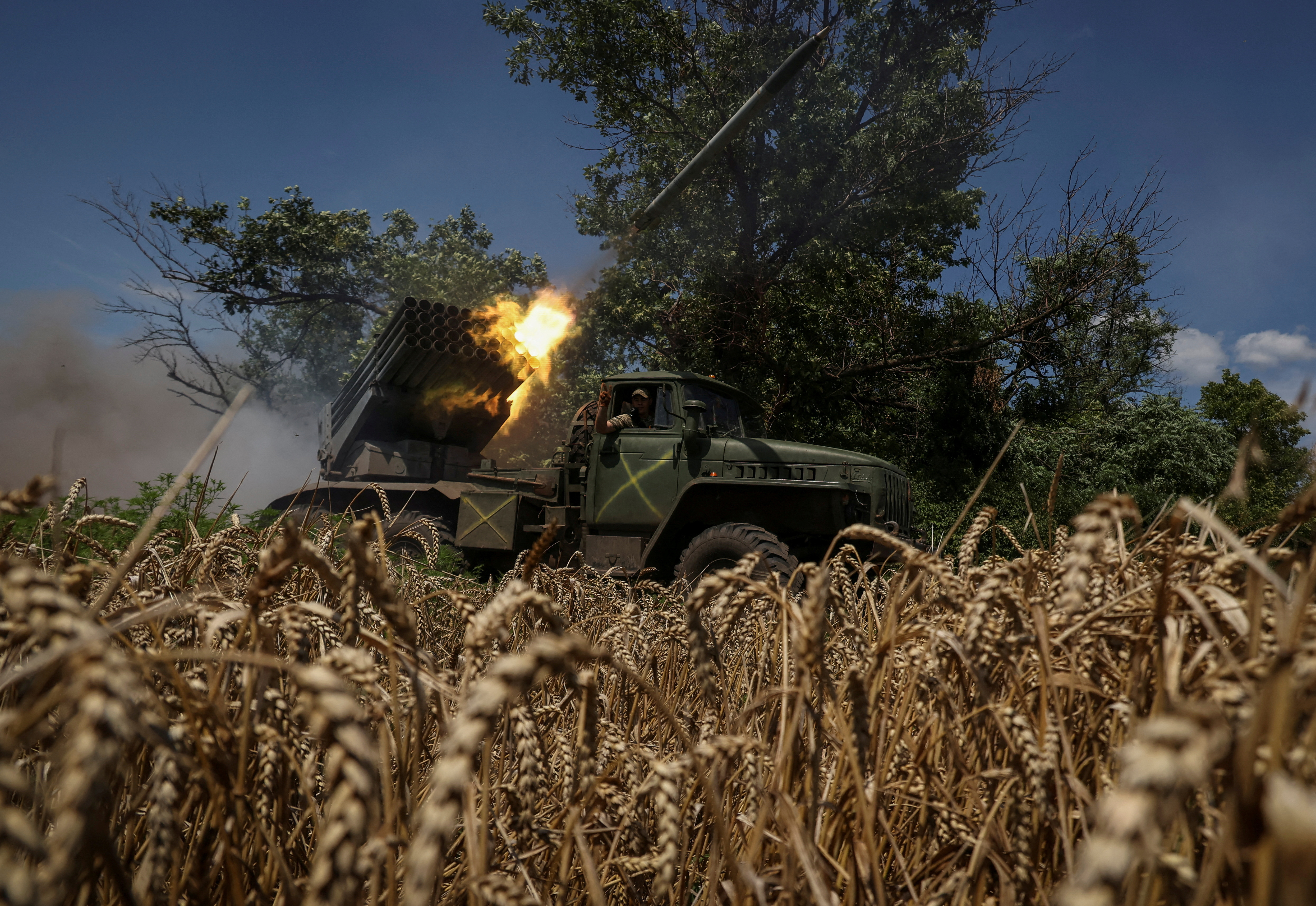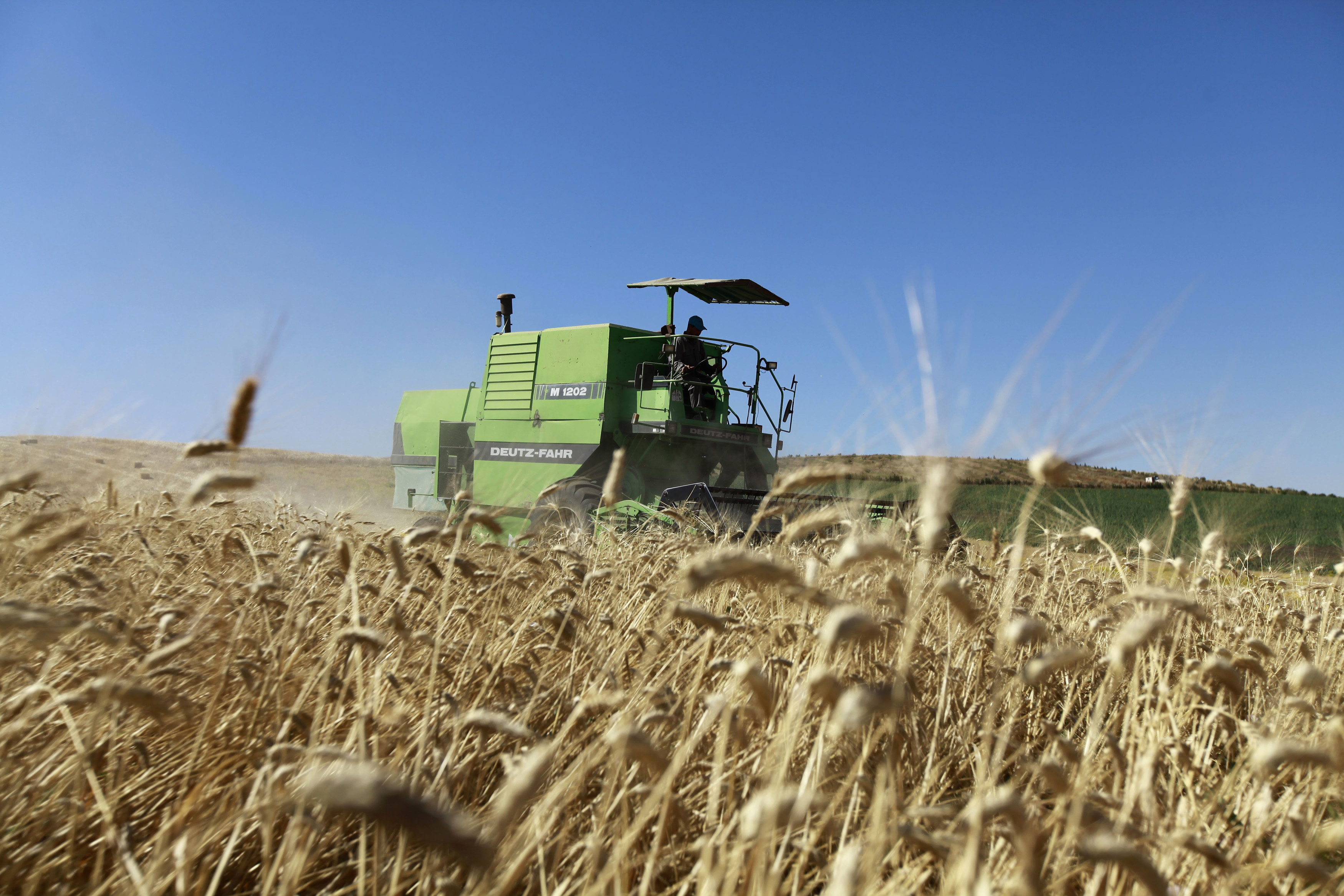Russian Aggression Strikes Ukrainian Ports Near NATO Border Ahead of Vital Talks to Resume Grain Deal

Russian Aggression Strikes Ukrainian Ports Near NATO Border Ahead of Vital Talks to Resume Grain Deal
In a startling turn of events, Russia has launched a brazen attack on Ukrainian port facilities along the Danube River, which are crucial for the export of food supplies. This alarming incident unfolded just one day before Russian President Vladimir Putin and Turkish President Recep Tayyip Erdogan were set to engage in discussions aimed at reviving a vital grain export deal. The ramifications of this unprovoked aggression are rippling across the region, with at least two individuals reported injured and port infrastructure severely affected. Here, we delve into the details of this alarming situation and its potential implications for the geopolitical landscape.
Attack on Ukrainian Port Facilities
On a fateful Sunday, Russian forces unleashed a barrage of strikes upon Ukrainian port facilities situated along the Danube River, posing a severe threat to Ukraine’s food exports. Reports indicate that the attack resulted in significant damage to port infrastructure, leading to a fire that, fortunately, was swiftly brought under control. The toll of this aggression is not confined to inanimate structures; at least two people were injured in the midst of these perilous circumstances.

Aerial Assault in the Odesa Region
The aggression did not stop at the Danube River, as Ukraine’s Air Force reported a series of aerial attacks in the Odesa region. In a relentless onslaught, a staggering 25 drones were deployed in these attacks, with Ukrainian forces successfully neutralizing 22 of them. The use of drones in this offensive highlights the evolving nature of modern warfare and the increasing role of technology in military conflicts.
Russian Justification and Target
Russia’s Ministry of Defense offered a rationale for its actions, claiming that the target of these attacks was fuel storage facilities within the Ukrainian port of Reni. These facilities, according to the Russian statement, were purportedly supplying Ukraine’s military. The Russian Ministry of Defense further asserted that the operation was a resounding success, with all designated targets effectively neutralized.
International Condemnation
The ramifications of these attacks extended far beyond the immediate battlefield, drawing condemnation from the international community. Of particular significance was the proximity of these strikes to the border of NATO member Romania. Romania’s Ministry of Defense wasted no time in expressing its vehement disapproval of the attacks, categorizing them as “unjustified and in deep contradiction with the rules of international humanitarian law.” While acknowledging that there was no direct threat to Romanian territory or its territorial waters, the ministry’s denouncement underscores the regional tension generated by this act of aggression.

Implications and Geopolitical Significance
The timing of these attacks cannot be dismissed as mere coincidence. The fact that they occurred just ahead of scheduled talks between Russian President Putin and Turkish President Erdogan to discuss a grain export deal is significant. Grain exports are not only vital for Ukraine’s economy but also carry implications for global food security. Any disruption to these exports could have far-reaching consequences.
Moreover, the proximity of these attacks to NATO’s eastern border adds another layer of complexity to an already tense regional dynamic. NATO, a military alliance of North American and European countries, has been a longstanding source of contention between Russia and the West. The Alliance’s expansion into Eastern Europe, including countries such as Romania, has been met with resistance and skepticism by Russia.
The swift response from Romania, a NATO member, underscores the sensitivity of the situation. Any escalation of conflict in the region could potentially trigger Article 5 of the NATO treaty, which considers an attack on one member state as an attack on all member states. While this scenario remains speculative, it emphasizes the precarious nature of the current geopolitical landscape.
Humanitarian Concerns
Beyond the geopolitical implications, the attacks on Ukrainian port facilities also raise humanitarian concerns. In any armed conflict, it is the civilian population that often bears the brunt of the suffering. The injured individuals and the damage inflicted on port infrastructure are a stark reminder of the human cost of such aggression. It is imperative that all parties involved prioritize the safety and well-being of civilians and adhere to the principles of international humanitarian law.
The Way Forward
In the wake of these attacks, the international community must act swiftly to address the escalating tensions in the region. Diplomacy and dialogue must be prioritized to prevent further escalation and find a peaceful resolution to the crisis. The scheduled talks between President Putin and President Erdogan to revive the grain export deal present an opportunity for constructive engagement.

Additionally, all parties involved must respect international norms and laws governing armed conflicts. Any actions that put civilian lives at risk or target vital infrastructure must be unequivocally condemned.
As the situation continues to unfold, the world watches with bated breath, hoping for a de-escalation of tensions and a return to stability in this volatile region. The international community’s response to these events will undoubtedly shape the course of future developments, with the hope that diplomacy will ultimately prevail over aggression.



